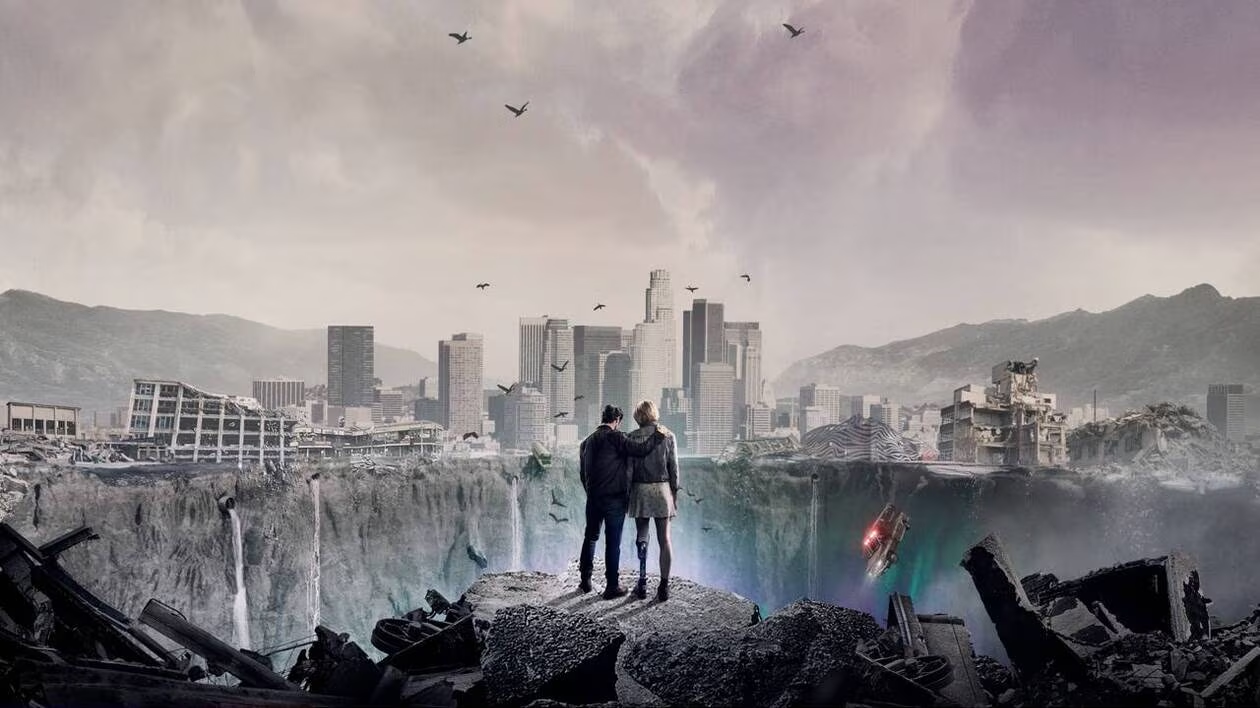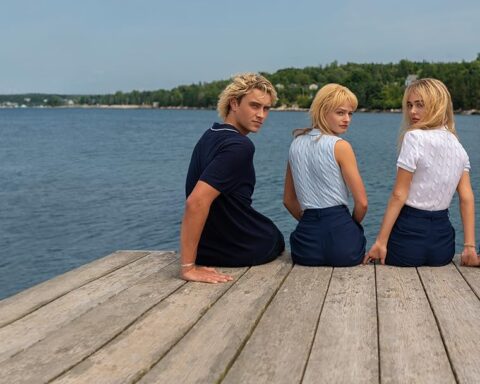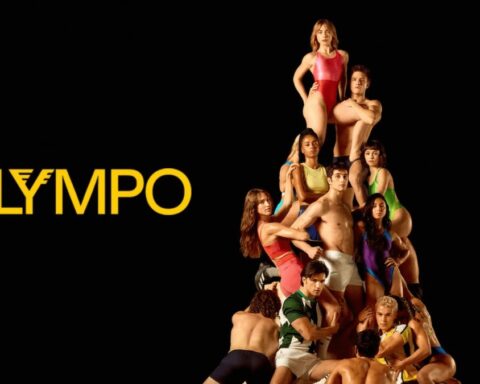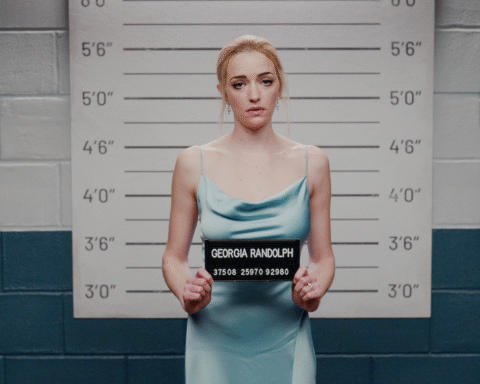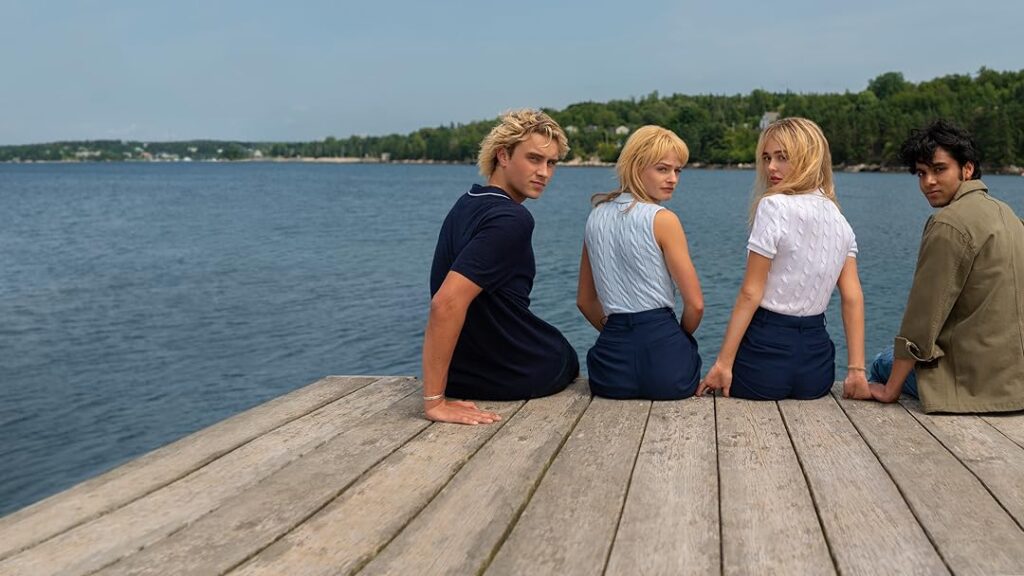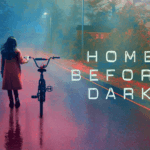A sinkhole yawned open on Wilshire Boulevard, swallowing cars, buildings—even people—then dropped them into a primeval, wolf-haunted frontier. That’s the gleefully absurd premise of La Brea, an NBC series that ran for three seasons (2021–2024), leaving behind frayed plot strands, questionable effects, and an undeniable crowd-pleasing energy.
Pulse-Racing Premise & Network Popcorn
At its core, La Brea delivers the kind of combustible setup that demands attention: a plunge into 10,000 BCE, desperate survival stakes, a mystery-laden tunnel to present-day Los Angeles, and family bonds strained across epochs. It’s high-stakes adventure packaged in a slick, broadly accessible way—very much network television in its “big idea, bold visuals” mode. Brian Tallerico called its pilot “a B-movie riff on the Lost formula” that’s “engaging enough” to hold viewers, even as he warned of its shaky foundation.
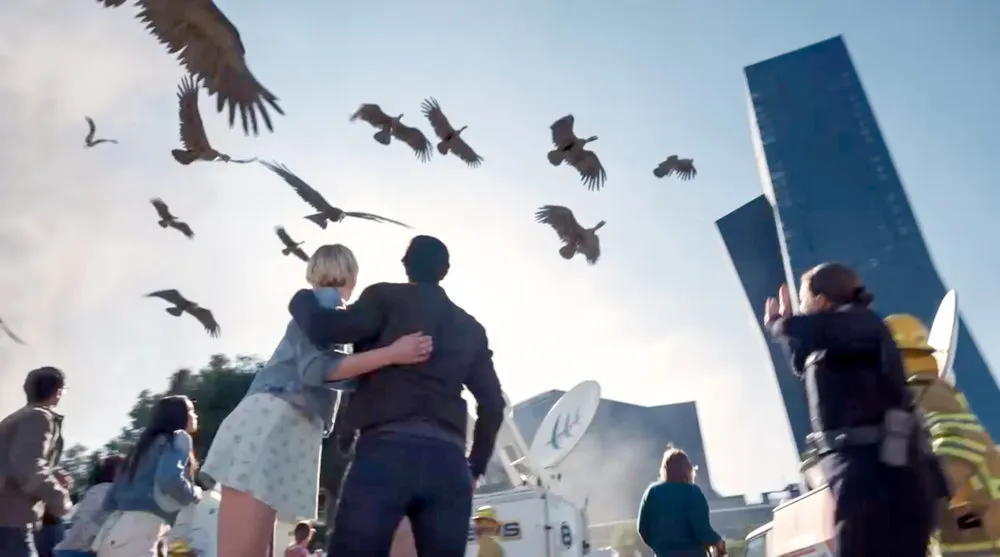
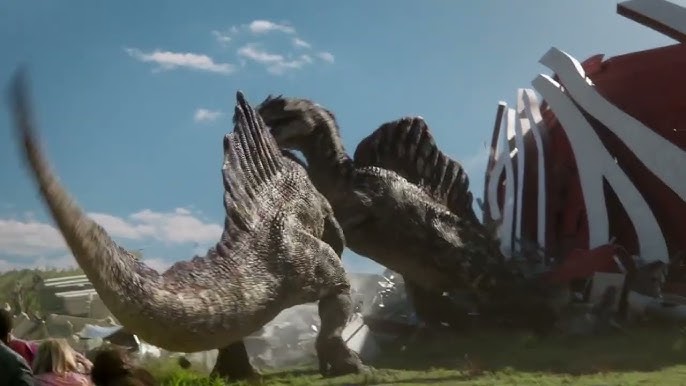
La Brea Finds Strength in Cast & Momentum
From Natalie Zea’s grounded presence to Eoin Macken’s tortured visionary, the principal cast gives the series its necessary emotional mooring. Viewers lean in, especially as the narrative roams from 10,000 BCE to shadowy government intrigue in modern LA. A third season trimmed to six episodes delivered brisk pacing and solid narrative closure—an impressive feat in today’s strike-scarred landscape.
Where It Trips
1. Scripts Laden with Melodrama Over Nuance
ScriptShadow’s pilot review hits the mark: “melodrama” bubbles as slow motion emphasizes a wobbling prosthetic leg rather than emotional truth, while character reactions feel amplified rather than felt.
2. Surviving the Impossible—Without Explanation
Survival logic is threadbare: how do cars crash and people survive a massive fall? The show nods at this, but offers no satisfying answer—this sort of “mystery by necessity” strains credibility.
3. Effects That Sometimes Undercut the Stakes
Despite its budget, La Brea occasionally falters with CGI that feels like it belongs in a cheaper, cheer-for-the-effort creature feature. Reddit users lament, “CGI is terrible… The wolves were hilarious, like Sharknado bad.”
4. Dialogue That Hits the Nose Too Often
Reddit viewers coined some brutal but vivid descriptors: “characters are clichés, the dialogue ludicrous and the acting is shockingly bad.” One wrote, “I audibly groan… at least every 5 mins.”
5. Lost-Lite, but Without Its Gravity
Comparisons to Lost are frequent and sharp: one user called it “a painful copy,” citing familiar tropes like familial splits, time-travel mysteries, and “dangerous predators that shouldn’t exist.” Others called it a “parody of Lost,” suggesting its homages sometimes border on homage-but-unabashed.
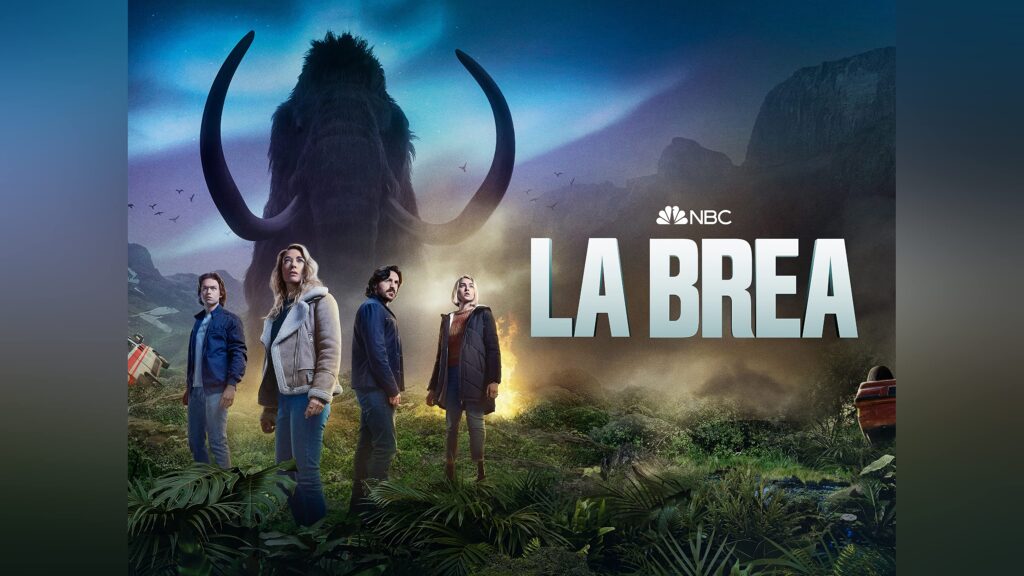
Why It Still Earns 4 Stars
- It embraces pulp with wit. The show’s energy compensates for its flaws—this is bold, unapologetic escapism, with campy thrills and heartfelt moments.
- Characters spark, despite clunky dialogue. Zea, Macken, Okonkwo deliver enough sincerity that you root for them.
- It wraps up cleanly. A finale that echoes the pilot’s first minute, lands key arcs, and gives fans emotional closure is rare—and admirable.
- It dared to dream big under broadcast constraints. Three seasons of imaginative world-building, despite mixed reviews (Rotten Tomatoes 29%, Metacritic 49/100), testify to a production that stuck to its concept.
| Strengths | Faults |
|---|---|
| Gripping, high-camp premise that engages instantly | Heavy on clichés, heavy-handed dialogue |
| Solid lead performances anchoring the adventure | Janky CGI that occasionally undercuts immersion |
| Brisk, emotionally satisfying conclusion | Implausible survival mechanics and narrative shortcuts |
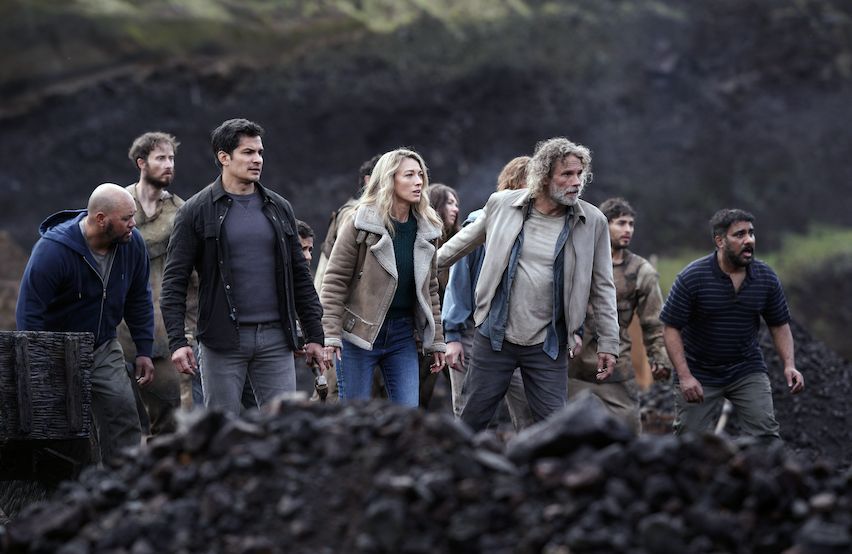
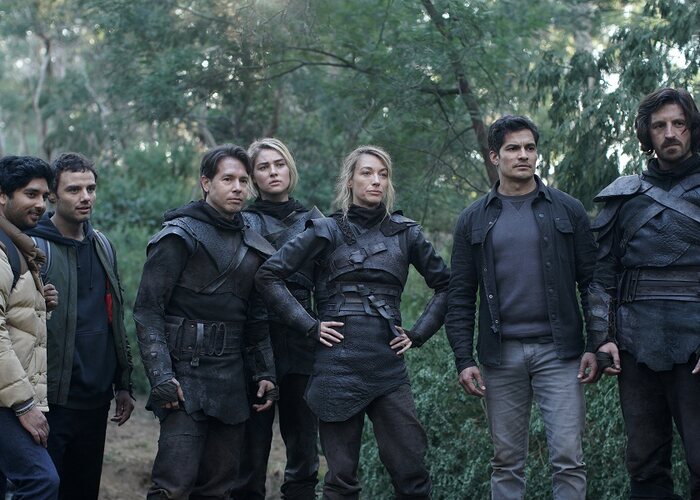
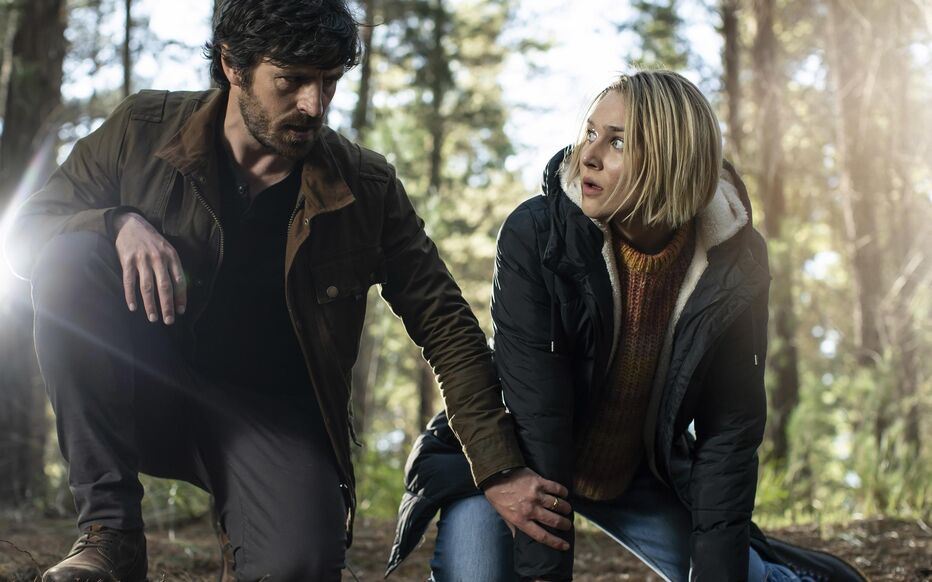
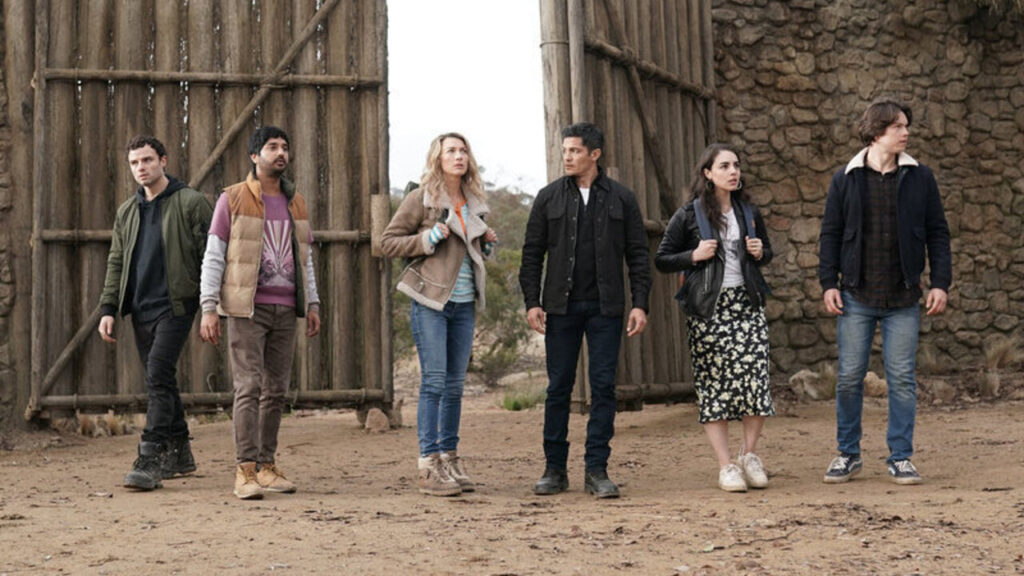
La Brea : Let’s Take A Deeper Dive Beyond the Sinkhole
Standout Episodes (Where the Show Hit Its Peak)
Even critics who scoff at the dialogue admit that when La Brea goes all in, it’s entertaining. A few episodes stand out as the series flexing its pulp muscles:
- Season 1, Episode 1 (“Pilot”)
The disaster opening — the ground splitting under Wilshire Boulevard — is both ridiculous and riveting. For all its implausibility (how exactly do survivors not end up paste at the bottom of the hole?), it sets a tone of chaotic fun. The family split (mom and son below, dad and daughter above) locks in an emotional hook. - Season 1, Episode 6 (“The Way Home”)
A tighter bottle episode that uses its prehistoric setting to force characters into hard choices. Viewers got their first taste of the show’s “what would YOU do?” survival beats. - Season 2, Episode 7 (“1988”)
A time-travel curveball that leaned into nostalgia, with characters stumbling into Reagan-era Los Angeles. Campy, yes — but also one of the more inventive, surreal twists, and proof the show could play with genre. - Season 3, Episodes 5–6 (“The Road Home” Parts 1 & 2)
The finale. David Appelbaum promised “closure,” and against the odds, the writers tied the family arcs together. One Reddit viewer called it “actually satisfying” — rare praise for a genre show finale.
The Mythology : Big Swings, Wobbly Science
La Brea’s mythology is both its best and worst quality. It goes for broke:
- The Sinkholes → not just freak accidents, but wormholes bridging millennia.
- The Civilizations Below → rival factions, ancient survivors, even a society with hints of advanced knowledge.
- The Time Portals → shimmering auroras that allow jumps not just to 10,000 BCE, but to 1988, and beyond.
This ambition earned it “Lost-lite” comparisons. Critics at RogerEbert.com and fans alike said it couldn’t quite sustain the gravitas — mysteries were introduced faster than they were explained. But unlike Lost, which famously refused to explain everything, La Brea actually did pull its threads together by the end. For a network show written under strike constraints, that’s a small miracle.
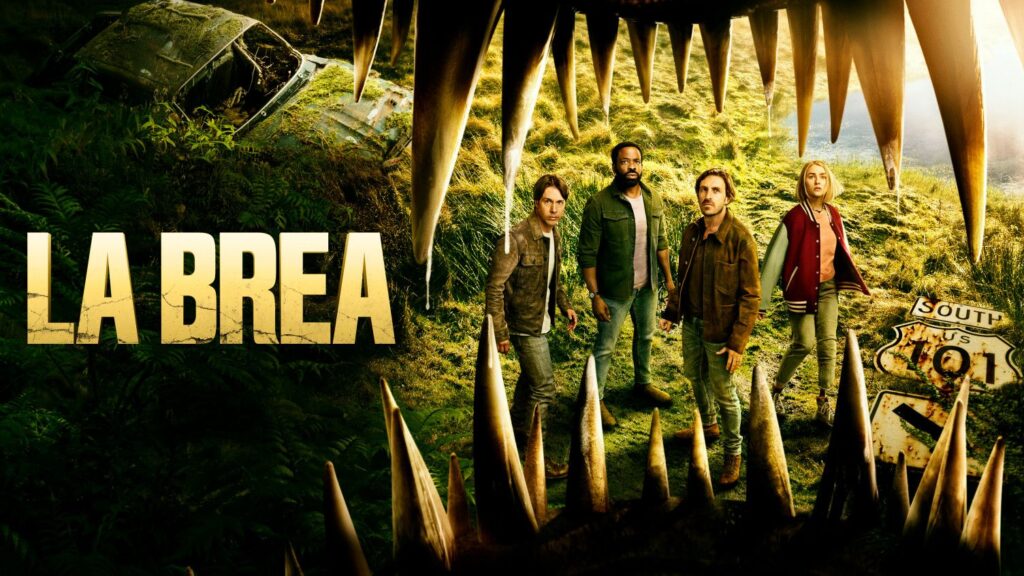
Characters Who Rose Above the Script
The acting often had to wrestle clunky dialogue — but a few performers gave the show a pulse:
- Natalie Zea (Eve Harris)
The emotional anchor. Critics praised her ability to sell melodrama as grounded maternal strength. Without her, the show’s stakes collapse. - Eoin Macken (Gavin Harris)
Started as a troubled visionary no one believed. Grew into a reluctant hero archetype who, against expectation, became sympathetic. - Chiké Okonkwo (Ty Coleman)
The heart of the ensemble. Reddit fans consistently singled out Ty as “the only character written with warmth and subtlety.” His cancer storyline gave La Brea its most human notes. - Zyra Gorecki (Izzy Harris)
Rare representation: Gorecki is an above-the-knee amputee playing a character with the same condition. Her inclusion gave the show an authenticity that critics and advocacy groups applauded.
What This All Means From La Brea
La Brea is not, and never claimed to be, prestige sci-fi. It’s a network adventure serial, the kind that once filled prime time with spectacle and cliffhangers. The critics weren’t wrong: dialogue is often painful, effects sometimes distractingly bad, and survival logic is flimsy. Yet, against the odds, it carved out a fanbase, told its story to completion, and even delivered episodes people will rewatch with guilty-pleasure glee.
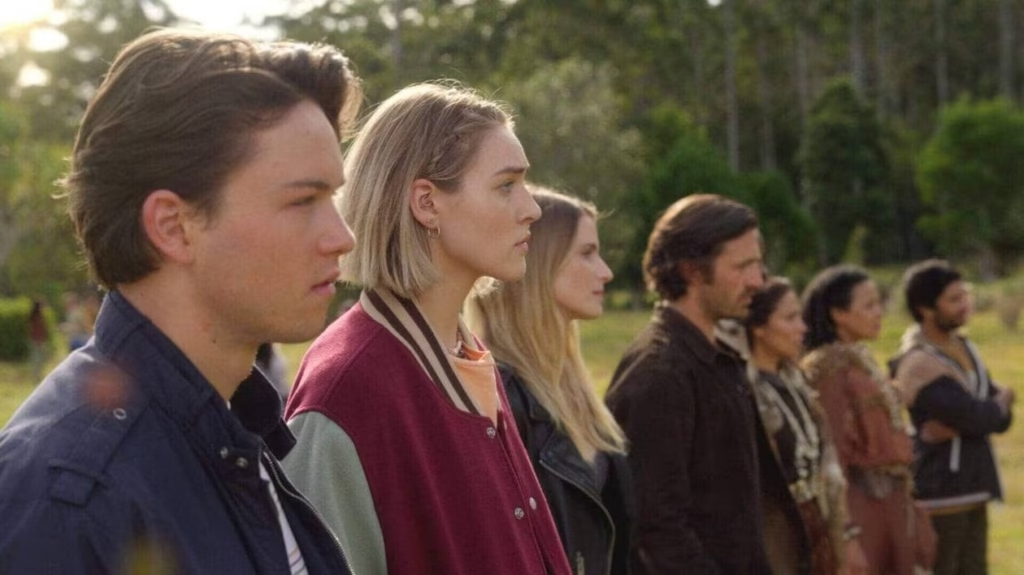
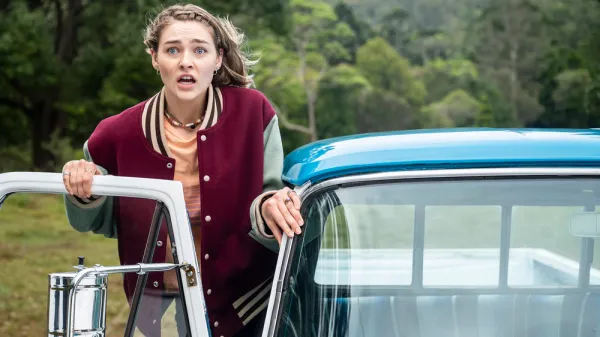
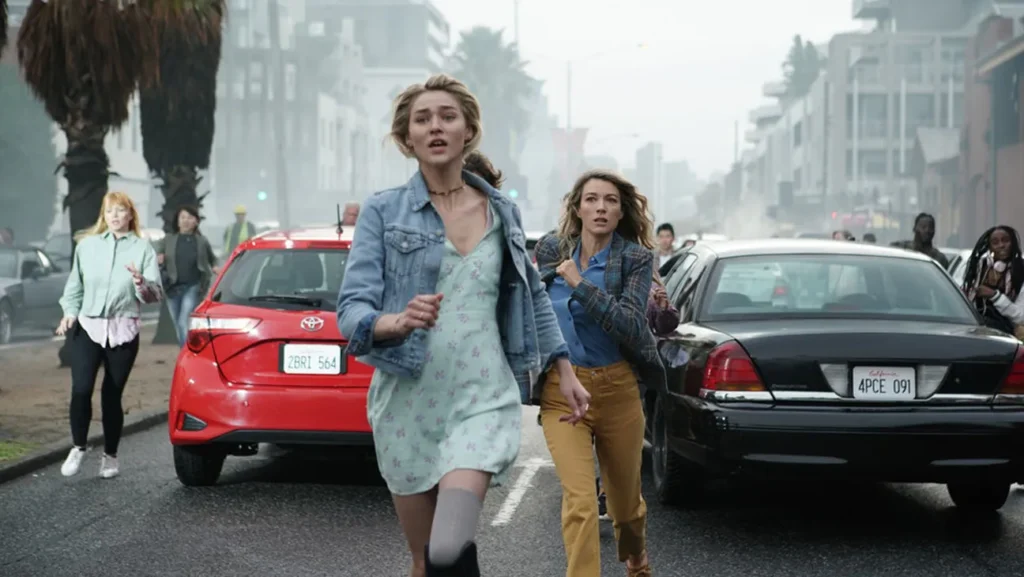
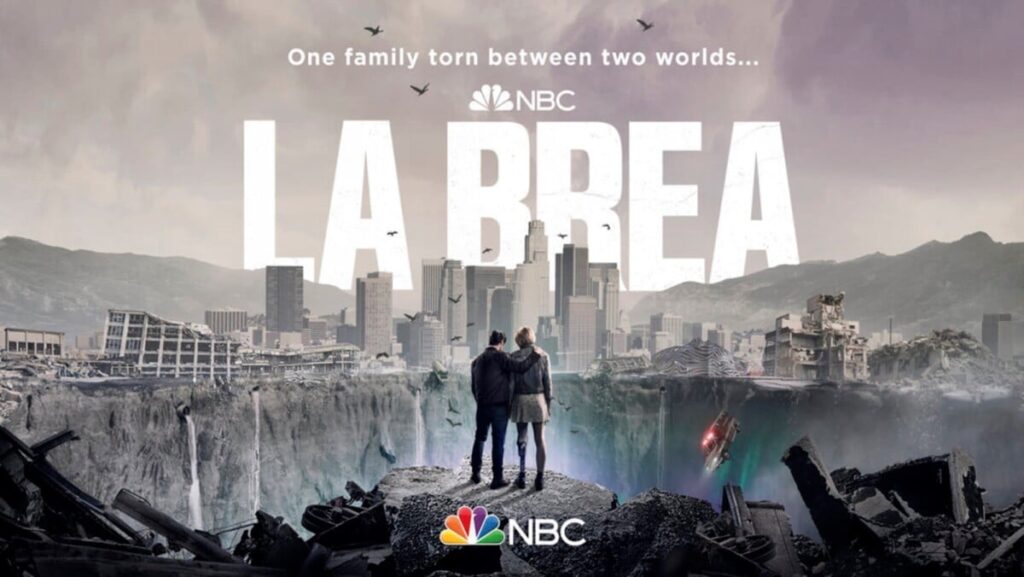
Think of it less as a rival to Westworld or The Leftovers, and more as a modern heir to pulp serials: messy, earnest, exhilarating, and sometimes ridiculous.
La Brea is a show best enjoyed with popcorn, a forgiving eye, and a taste for bold ideas — and perhaps that’s why it deserves its four stars.
